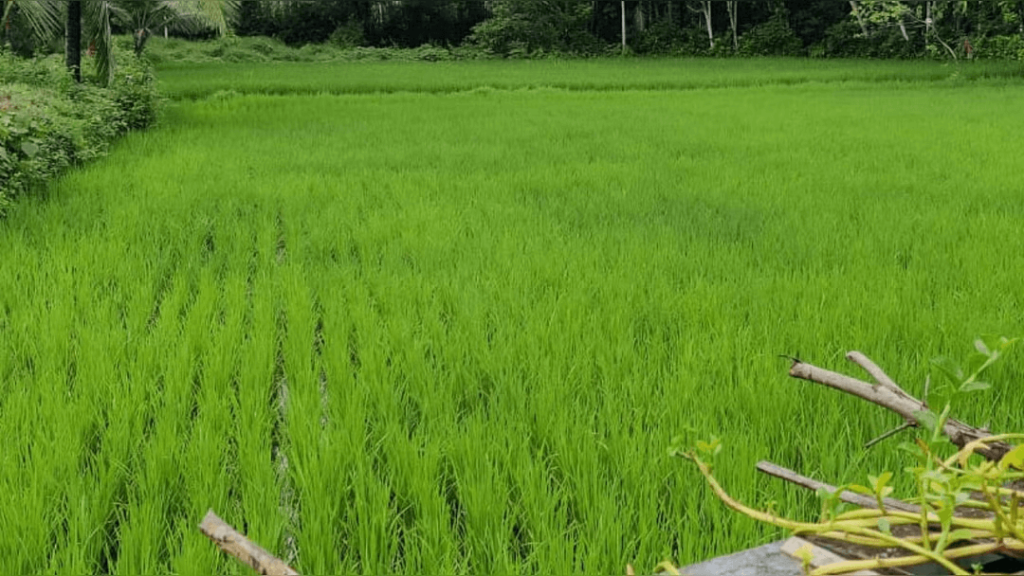Tags
Paddy monopoly hits state’s rice bowl’s soil fertility
Paddy scientists say saline-alkaline stress has reduced crop productivity by 20 per cent on over one lakh hectares of the total 3.5 lakh hectares that grow paddy in Ballari, Koppal, Raichur and Vijayanagar districts, considered the state’s rice bowl.These districts account for 50 per cent of Karnataka’s total rice production.
Vittal Shastri

Cultivation of only paddy for several decades with no crop rotation has reduced soil fertility in Tungabhadra’s command areas due to depletion of essential nutrients.
Paddy scientists say saline-alkaline stress has reduced crop productivity by 20 per cent on over one lakh hectares of the total 3.5 lakh hectares that grow paddy in Ballari, Koppal, Raichur and Vijayanagar districts, considered the state’s rice bowl.These districts account for 50 per cent of Karnataka’s total rice production.
Agriculture experts say farmers used to reap a good harvest by growing two paddy crops with a regular change in cropping pattern every year for nearly four decades since the dam was built in 1953. But unscientific irrigation and use of excess fertilisers in the last 15-20 years has hit soil fertility.
They say soil salinity in 30 per cent of the command area has crossed 4-6 deci-Siemens a metre, which is considered high, with levels reaching up to 15-20 deci-Siemens on at least 5,000 hectares of some areas, where even grass cannot be grown.
“Salinity should be less than 4 deci-Siemens to ensure fertility and a good yield. But farmers have been growing only paddy since 1990 without switching to other crops. Therefore, farm land is under saline stress due to continuous growth of paddy for both kharif and rabi seasons and high use of chemicals and fertilisers,” said Dr Mahant Shivayogayya, a paddy breeder and senior scientist at Agricultural Research Station in Gangavati.
The command areas of River Krishna in Vijayapura, Bagalkot and Yadgir districts also face a similar plight. Dr To address the issue, scientists last year released a new saline tolerant variety which is being cultivated on around 10,000 hectares.
The GNV-1109 paddy variety seed, which is known for its salt tolerance and particularly suitable for cultivation in saline soils, is known for its high yield even under such conditions.
The main feature of the variety is that it is salt tolerant up to 10 dSm with average yield of 30-35 quintals an acre with the crop duration of 125-130 days. It grows 105-110 cm high and moderately resists blast disease.
Paddy grower Basavaraj Ganekal from Challur village in Karatagi taluk of Koppal district said he has been getting a yield of 25-30 quintals an acre with the new variety against eight quintals earlier. “Saline-alkaline stress has reduced soil fertility due to uninterrupted paddy cultivation for more than a decade. The new crop variety weighs more and need less maintenance,” he claimed.
Meanwhile, Koppal agriculture department joint director Rudreshappa T S said saline stress has been increasing by the year in the Tungabhadra command area and farmers have to change the crop pattern to sustain the yield. Command Area Development Authority (CADA) is trying to reclaim saline-affected land by launching a scheme, he added.
https://www.deccanherald.com/india/karnataka/paddy-monopoly-hits-states-rice-bowls-soil-fertility-3413356Published Date: February 20, 2025






